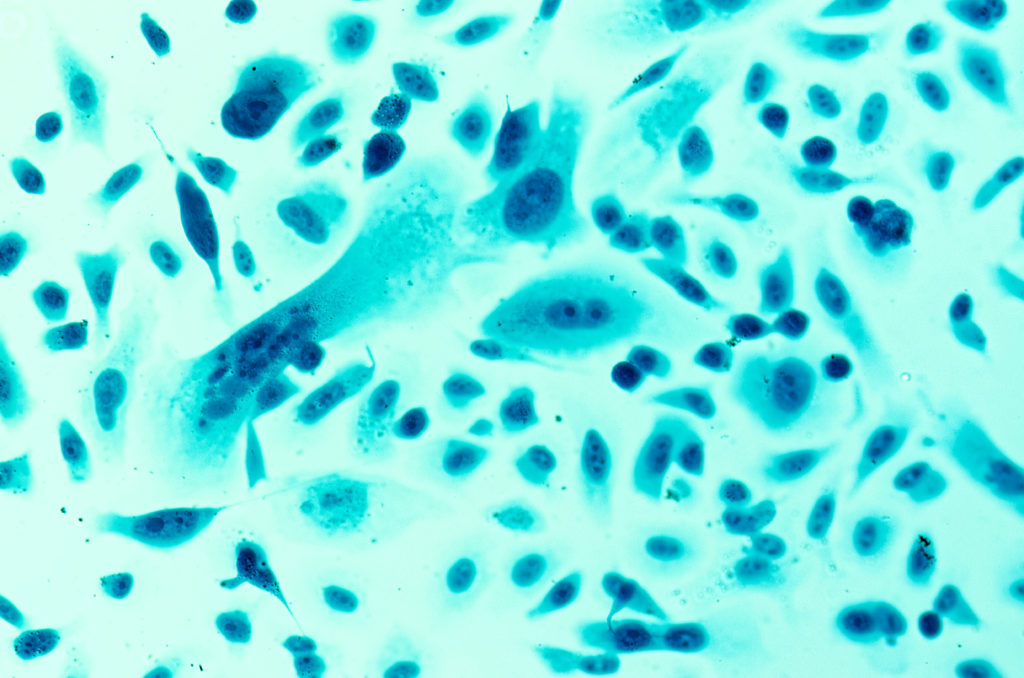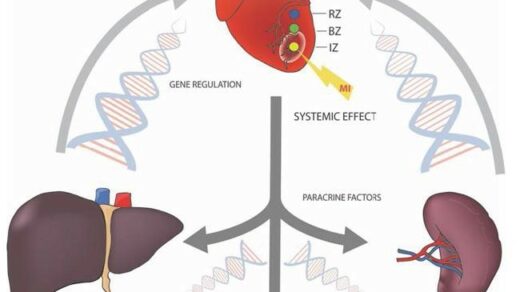A retrospective study from Russia demonstrates the anticancer effects of melatonin in poor-prognosis prostate cancer patients after combined hormone radiation treatment.

The Trending with Impact series highlights Oncotarget publications attracting higher visibility among readers around the world online, in the news, and on social media—beyond normal readership levels. Look for future science news and articles about the latest trending publications here and at Oncotarget.com.
—
The pineal gland is located in the center of the brain and, through cues from our environment, secretes a naturally occurring hormone: melatonin. Melatonin is responsible for maintaining and regulating the body’s circadian rhythm. It is also widely-known as a dietary supplement that can be purchased in synthetic forms to aid in improving sleep and insomnia. However, for the past few decades, melatonin has been used to treat ailments far more critical than jet lag and trouble sleeping.
“A number of epidemiological studies have shown the clinical effectiveness of melatonin in reducing both the risk of developing PCa [prostate cancer] and its aggressiveness [1, 14].”
In this retrospective study, published in Oncotarget, researchers from St. Petersburg, Russia, aimed to improve treatment efficacy for patients with prostate cancer through the long-term use of melatonin after combined hormone-radiation treatment.
Melatonin’s Clinical Use
Antioxidant properties in melatonin were discovered in the 1990s, and additional studies confirmed its anticancer effects by the early 2000s. Previous in vitro and in vivo studies have shown that melatonin can affect various mechanisms that inhibit the proliferation of prostate tumor cells by enhancing apoptosis and cytoreduction. Melatonin also reduces prostate cancer tumor potential and angiogenesis (the development of new blood vessels).
“Some possible points of inhibition of tumor growth by melatonin included activation of T helper type 1; increased production of several cytokines (IL-2, IFN-γ, IL-6); inhibition of angiogenesis; reduced expression of the VEGF receptors; activation of apoptosis in tumor cells; and a decrease in telomerase activity.”
The Study
The team retrospectively analyzed 955 patients with prostate cancer who received treatment between 2000 and 2019 from the Granov Russian Research Center for Radiology and Surgical Technologies. Patient profiles were first divided into two groups: 559 patients in the control group did not take melatonin, and 396 patients in the case group took melatonin. Patients were then further categorized into three prognostic groups: patients diagnosed with a favorable prognosis (113); patients having an intermediate prognosis (187); and prostate cancer patients presenting with clinical and morphological characteristics of poor prognosis (655). Each participant who took melatonin took a dose of three milligrams each day, 30 minutes before sleep.
“Patients did not receive melatonin during the winter season (December-February). It is well known that in the winter season the melatonin level is at its maximum and in the spring–summer season the melatonin level is at its minimum.”
All patients received combined hormone radiation treatment, and each of the three prognostic groups received treatment protocols in accordance with their individual prognosis. The team used multi-sided statistical analysis to observe the effects on long-term survival rates after melatonin administration. Research revealed no improvements from long-term melatonin intake for patients with favorable and intermediate prostate cancer prognoses.
“The analysis of the overall survival of patients with PCa with both favorable and intermediate prognosis did not reveal any significant differences depending on the long-term use of melatonin drugs.”
Results in Late-Stage Prostate Cancer Patients
“In the group of patients with poor prognosis, we see the opposite picture.”
In prostate cancer patients with poor prognosis, melatonin showed a clear, positive effect on long-term survival rates. In a multivariate analysis, melatonin proved to be an independent prognostic factor and reduced the risk of death for prostate cancer patients by more than twice.
The median overall survival in patients treated with melatonin was 153.5 months, compared to 64.0 months in the patients who were not treated with melatonin. At their five-year follow-up, patients who received melatonin had an overall survival rate that was an average of 13 months longer than the control group.
Conclusion
Researchers reported that patients with poor prognosis prostate cancer do not respond well to current treatment regimens alone. Melatonin has multifaceted antitumor effects, which were fully achieved and demonstrated in this study of long-term results for patients with poor-prognosis prostate cancer.
Interestingly, researchers in this study note that night shift work has been demonstrated as a risk factor leading to more aggressive prostate cancer tumors in patients. They suggest it is possible that patients who present with poor-prognosis prostate cancer have lower melatonin levels.
“The results of our study are in agreement with the data on favorable antitumor effect melatonin treatment of patients with advanced cancer of various localization, mainly in the breast, uterus, colon, etc.”
Click here to read the full scientific paper, published in Oncotarget.
Oncotarget Shorts
—
Oncotarget is a unique platform designed to house scientific studies in a journal format that is available for anyone to read—without a paywall making access more difficult. This means information that has the potential to benefit our societies from the inside out can be shared with friends, neighbors, colleagues and other researchers, far and wide.
For media inquiries, please contact media@impactjournals.com.



